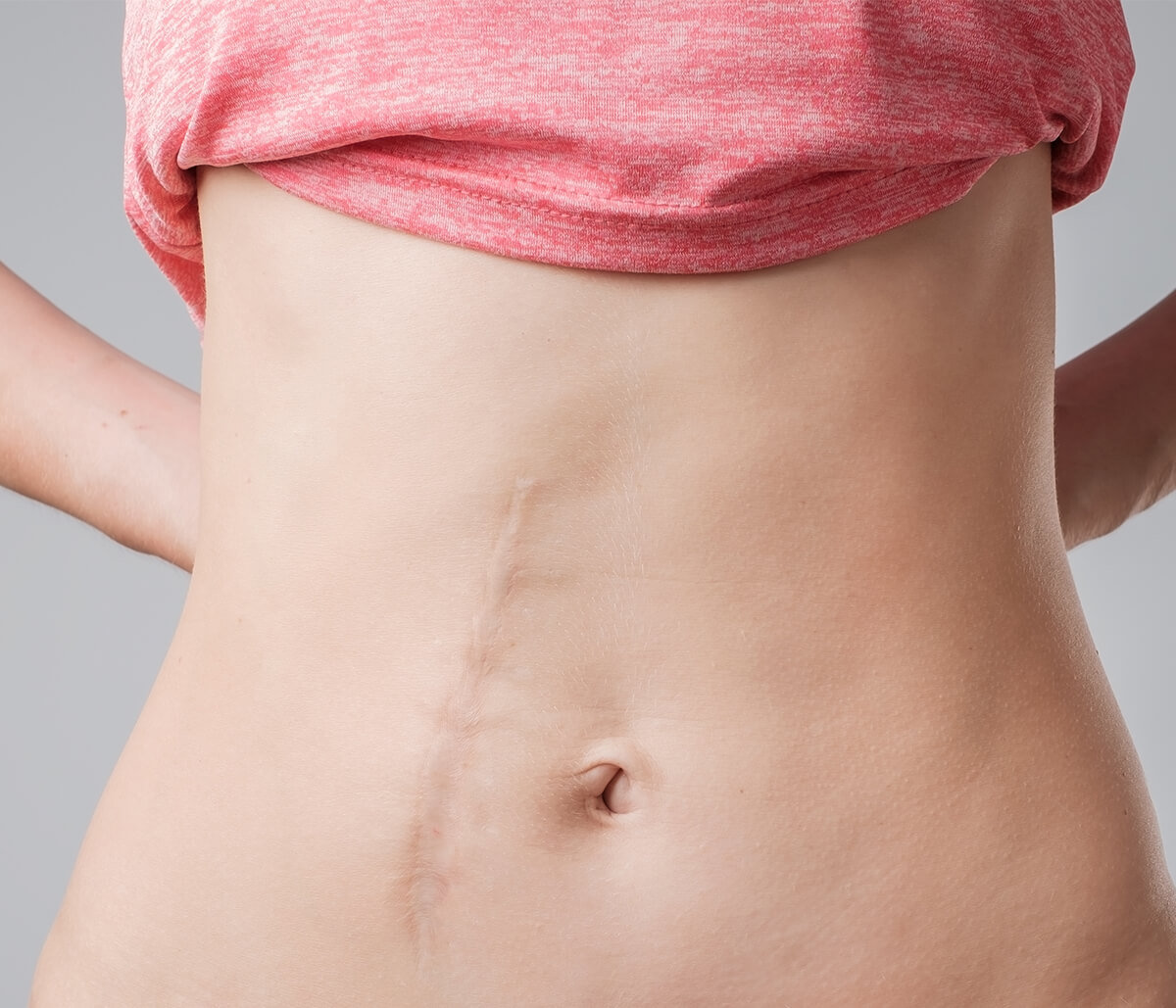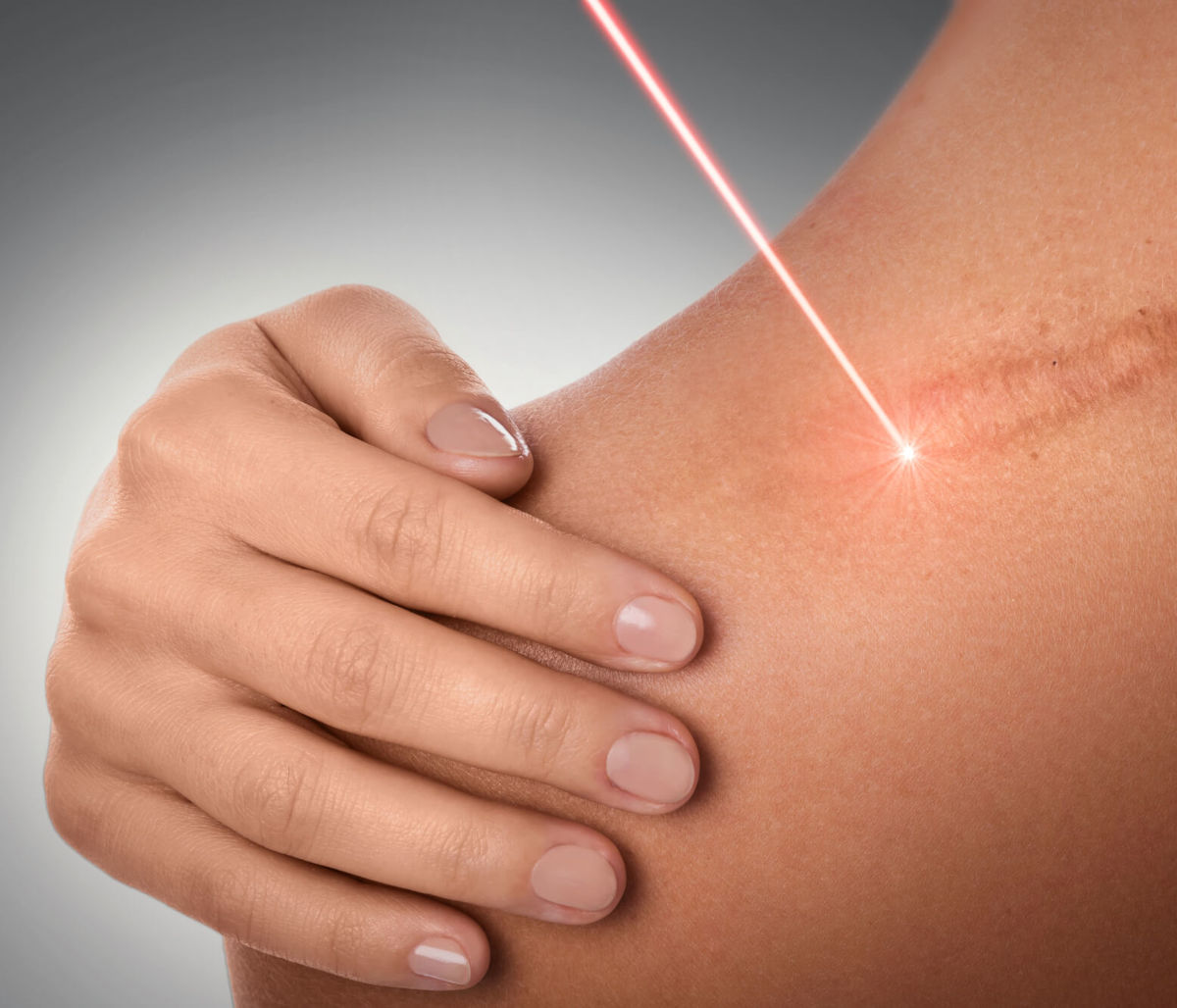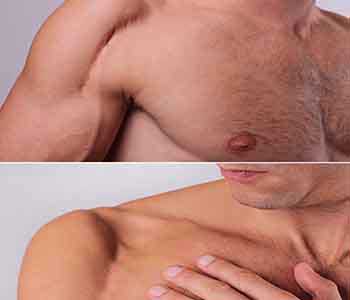Precision scar removal treatment for every type of patient
in the NYC tri-state area
Scars come in a variety of shapes and sizes, based on factors such as the patient’s ethnic background, skin type, and the cause of the scar. Board-certified plastic and reconstructive surgeon, Dr. Edmund Kwan, provides precise treatment that improves the overall appearance of the skin and bolsters confidence by minimizing scars. Tailored scar removal treatment in the NYC tri-state area is provided from Dr. Kwan’s offices in Manhattan, Queens (Flushing), and New Jersey (Fort Lee). All effective treatments start with Dr. Kwan evaluating your scar. From there, Dr. Kwan determines the most appropriate way to improve the appearance and feel of that scar. Scars are lingering signs of past trauma or damage. In some cases, the scars are too large or are in too prominent of a place on the body to properly cover them with clothing. Sometimes, fabrics rub up against the scar, which can be quite painful and limit mobility, interfering with day-to-day activities.
Flat scars
Also known as cicatrix, these flat scars start off as pink or red and slightly elevated. Initially, they tend to itch. As the scar “ages,” it flattens out, lightens up, and may end up lighter than the color of the surrounding skin. Many scars look this way and can often be prevented with proper care of wounded areas, such as burns, lacerations, and scrapes. Hypopigmentation, which is another way of referring to light patches of skin, may be treated with laser therapy of the application of other light-based devices. Scarred areas can become darker than the surrounding skin; hyperpigmentation may also be treated non-invasively with therapeutic light at Edmund Kwan, M.D.
Keloids
A particularly severe type of scar, keloids tend to spread out beyond the site of the original wound or injury. Sometimes, keloids appear several months or even up to a year after the skin is injured, and as your body’s healing goes into hyperdrive. Keloids are characteristically thick, large, irregularly bordered and may evolve into a mass that juts well above the surface of the skin. As the scar grows, it may become itchy and cause discomfort.
As a raised scar, a keloid that covers the shoulder, elbow, or other joints, is especially distressing because it makes simple tasks uncomfortable and cumbersome. Since this scarring has such far-reaching consequences on quality of life and emotional wellbeing, Dr. Kwan welcomes the opportunity to skillfully repair the keloid with precision excision. Therapies available at one of Edmund Kwan, M.D.’s three NYC-area locations include:
- Injections – Corticosteroids may be administered into the keloid, which has the effect of reducing its size and easing accompanying symptoms. A series of injections may be required, and the number of treatments required for improvement vary from person to person.
- Silicone gel sheets – These soft wound covers are used to flatten and reduce the size of the keloid. Dr. Kwan discusses how to properly apply this product.
Silicone sheets, as well as pressure treatments (such as an elastic bandage), are also good preventative measures, especially among groups that are at heightened risk of developing keloids. African, Mediterranean, Indian, and Latin patients are more susceptible to keloid formation. Dr. Kwan is adept at treating patients across a diverse range of ethnic and multi-cultural backgrounds. So, the health of your skin is in good hands, as you can benefit from his vast experience.

Raised, hypertrophic scars
This type of scar also resides above the surface of the skin, but it doesn’t typically expand beyond the boundaries of the area of the wound or infection site that preceded the scarring. Hypertrophic scars resemble red lumps, and their appearance may be improved with injectables (like steroids) or silicone sheets, which flatten out the scar.
Scar Removal Treatment Before and After Done By Dr. Kwan


Acne-based scars
There are also different types acne scars, which serve as painful reminders of past outbreaks; for instance, inflammatory acne can cause depressed or “rolling” scars with sloped edges; smaller, steeply-bordered “boxcar” scars; and deep icepick scars that look like empty pores. Depending on your needs, treatment includes surgical excision or skin resurfacing (mechanically or with lasers).
Scar Revision explained by Dr. Edmund Kwan

What is scar revision?
Most of the time, scar revision means to remove that scar, literally excise the scar, and then stitch it up nicely.
That’s the first thing and probably applies to the majority of the people. When we do that, they are going to form another scar, but it can be much better than the initial scar.
If a scar keeps coming back, what treatment do you offer?
In some patients, when you do this, they still develop another scar that is as prominent and just as noticeable. So, in these patients, just removing that scars again is not going to do it; they may need some other treatment.
Many times I also inject along with scar revision a medication called cortisone. Cortisone tends to flatten out the scar.
What are Keloids?
In some patients who come in initially, a cortisone injection is all they may need instead of scar revision. Cortisone tends to flatten out scars it reduces inflammation is sort of breaks down the collagen in the scar and flattens and smooths it out.
Cortisone can be done, but certain patients have really resistant scars, that are super thick that they have had several scar revisions and it’s coming back thicker and thicker.
This type of scar we may call a keloid. Keloid is now a scar that is really thick and exceeds the boundary where the actual scar was.
How does radiation help keloids?
These are actual tumors they grow. These types of scars, if you remove it they are going to come right back. If you are going to take care of this kind of scar, I end up actually removing this scar and do radiation at the same time.
Many people know that radiation is done for cancer, but radiation can be done for this kind of scar because this type of scar is like a tumor.
Patients undergo just the removal of the scar and scar revision, follow it with three treatments of radiation. Radiation will suppress the scar tissue from coming back, and this has been very effective in treating patients with very bad and thick scars.
Does radiation have complications?
Radiation itself has certain complications but these days the radiation oncologists have a great tool they just literally radiate just that area so that they don’t expose other parts of the body to radiation.
However, again, this type of procedure with radiation, I try to reserve as a last resort. Generally, with most of the patients, I am able to remove the scar and closing it really nicely with the smallest stitches that don’t react with the skin much.
Regain your confidence! Successful Scar Removal Treatment by Dr. Edmund Kwan

What is scar removal procedure?
Scar removal is a very tricky area for any of us in plastic surgery because it is unpredictable.
Scars themselves depends on many factors and these factors include your ethnic background. Meaning that certain ethnic people tend to get worse scars than others.
Does scarring differ from individual to individual?
Certain ethnic people tend to get the worst scars than others.
For instance, if you have darker skin you can get thicker scars. If you have lighter skin like many of the Caucasians your scar tends to be much better and flat.
Then even within the ethnic population, certain people just develop thick scars and you don’t think that they would.
Scars not only depend on the ethnic nature of the patient but also on the location where it is.
What causes bad scarring?
If you close these cuts in the different parts of your body under a lot of tension, you really pull the skin together to close it that scar will be worse.
If you have a contaminated wound that scar will be worse. If it becomes infected like when you have a dog bite or a human bite then that scar can be really bad.
Scar is a huge subject and it depends on who it is and what part of the body and how you got it on.
There is no need for you to live with scarring to regain your confidence call us at Manhattan (212) 734-4488 | Flushing 718 661 4580 | New Jersey 201 947 3636
Goodbye scars; hello confidence!

Depending on the nature of your scar, removal treatment may be characterized as “medically necessary,” and at least partly covered by insurance. Edmund Kwan, M.D. also takes pride in providing top-notch care without the sky-high price that is sometimes associated with the 10028 Zip code. Schedule your consultation with Dr. Kwan at the Manhattan, Flushing, or New Jersey office.
What our patients say
More ReviewsEliminate painful reminders of past sicknesses, accidents, or acne outbreaks
Contact Edmund Kwan, M.D. for scar removal treatments, expertly tailored to your needs – there is help for every type of scarring! Schedule a consultation at one of Dr. Kwan’s three Tri-State locations: NYC (Manhattan), Queens (Flushing), and New Jersey (Fort Lee)













